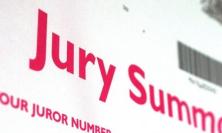In the wake of the Labour Party’s worst local election results for forty years, Peter Scally SJ reflects on what has happened to Gordon Brown in the ten months since he became British Prime Minister, and what he needs to do now.
It was the ubiquitous phrase this time last year, used by nearly every columnist and commentator in their just-who-is-this-man-who-is-becoming-our-Prime-Minister pieces on the accession of Gordon Brown. “Son of the manse”, they said, summing up in four words so much of what they wanted to say about Gordon Brown. His father was a Church of Scotland minister, and this, it was said, explained so much about him – his unsmiling dourness, his careful financial stewardship, his belief in hard work and in the “old Labour” values of public service, social justice, the sharing out of wealth and concern for the poor, both at home and abroad.
Brown did nothing to discourage this. In his first speech as leader to the Labour Party Conference in September 2007, he made explicit reference to the formative influence of the Kirk and his father’s preaching, talking of the “moral compass” these Christian values were for him, and peppering his speech with biblical references like the parable of the talents and “suffer the little children to come unto me”.[1]
All of this was surprisingly well received in the country. Despite predictions to the contrary, it seemed that after ten years of the smooth, shiny, smiling Tony Blair, people had tired of “spin” and felt ready to accept a less glossy leader. A month into Brown’s premiership, a member of David Cameron’s shadow cabinet was anonymously quoted in the Observer, admitting that they had underestimated Brown, and that his “gravitas” was an asset that went down well with the public: “When people see Brown they will think one word: serious.”[2]
But they don’t talk about the “son of the manse” any more. This may be due to people simply tiring of the cliché, but I think there is more to it than that. “Son of the manse” does not fit the public image of the Prime Minister anything like as well as it used to, and this, I would argue, amongst many problems he faces, is his biggest problem of all.
Commentators point to a whole litany of slips, cock-ups and U-turns in the last months to which they attribute Gordon Brown’s fall from grace, but it seems to me that there were three big ones, and the reason they were big ones is that they showed Gordon Brown in a very different light to that of the son of the manse. They were all occasions on which he appeared to abandon his high principles in an attempt to be clever and outwit the Conservatives. And every time it blew up in his face.
First there was the abolition of the 10p lower rate of income tax. I say “first” because, although it is quite recently that this has been the cause of headline-grabbing controversy (after it came into effect), it was announced over a year ago in the budget of 2007, when Brown was still Chancellor of the Exchequer. At that time, there was an argument raging in the Conservative Party about whether they could promise to cut the basic rate of income tax. “Grassroots Tories” thought it obvious that they should make such a commitment – cuts in taxation being, they believed, one of the main reasons for having a Conservative government – but David Cameron and his shadow chancellor, George Osborne, insisted that it was unwise to make such commitments far in advance of a general election, since economic conditions could change and make it impossible to honour such pledges. It was, it seems, with at least one eye on wrong-footing and embarrassing the Conservatives that Brown’s 2007 budget included a cut of 2p in the basic rate of income tax. Whilst they dither about whether they can even promise tax cuts in a hypothetical future, he could say, we are delivering tax cuts now. It may have achieved the aim of making the Tories look silly, but it was at the cost – in order to balance the budget – of abolishing the 10p lower rate which Brown had introduced in 1999. The appearance of cynicism given by this move was compounded by Brown’s claim that many low-earners would be able to reclaim through tax credits any income they lost through this measure, when the Treasury’s own figures show that only 25% of those entitled to tax credits actually claim them.
The second big mistake concerned the General Election that never happened in the autumn of 2007. Brown was enjoying an extended honeymoon with the voters through the summer and right into September, with a lead in the polls greater and longer-lasting than anyone had expected. It did not need Brown to do or say anything for there to be speculation about a snap General Election. After a certain amount of complaint at the time of his accession about having an “unelected” Prime Minister (largely based on ignorance of how the British political system works, exacerbated by creeping “presidentialism” in Tony Blair’s style of government) it was desirable in some people’s eyes for Brown to have a “personal mandate”. Labour had this unexpected poll lead over a manifestly unready Conservative opposition. The economy was doing OK, but facing an imminent downturn, so there could be a case for going to the country before things got worse. Brown did indeed say nothing, and the speculation increased, media speculation feeding on media speculation, in a self-induced frenzy of anticipation that dominated the “news” for weeks. The panic which this instilled in the Conservatives was palpable (it is easy to forget quite how unsettled and demoralised they were, trailing in the polls and fearing another humiliating election defeat, as they gathered for their conference in Blackpool on 30th September) and this may have seemed good reason for him to allow the speculation to continue, even if he had no intention of actually going to the country.
I find it difficult to believe that Brown really wanted to go to the country. Labour was in the lead in the polls, but not by a consistently big enough margin to put the result beyond doubt. It was only two years and a few months since the last election, and he knew that the accusation of cutting-and-running would be made, and would not be without foundation. His cautious instincts must have been telling him not to do it, but he took a long time to rule it out, and, again, what was most damaging about all of this (which many see as the key turning-point for Brown) was that the delay appeared to be for less-than-wholly-honourable reasons, with a certain pleasure, perhaps – and advantage – being taken in the difficulty the prospect of an election was causing David Cameron and the Conservatives.
The third mistake was perhaps the most overtly engineered of all – when Brown chose the week of the Conservative Party conference (and a moment scarcely 24 hours before David Cameron was due to make his keynote speech) to fly to Basra and make a much-anticipated announcement about the withdrawal of 1,000 British troops from Iraq, saying, “hopefully they will be home by Christmas”. It wasn’t only the Tories who thought this was an attempt to “spoil” their conference – the Independent and the Guardian, for instance, agreed. And the Conservatives themselves – such as former Prime Minister, John Major – were outraged at what they called “playing politics with soldiers’ lives.”
Each of these three moves came across as a cynical attempt to get one over on the Tories, and – more to the point – as a decision made not for the national interest but for short-term, party advantage. Such an appearance would be damaging enough for your average politician, but for Gordon Brown, whose strongest asset was his reputation for “prudence” – for conscientious, earnest, wise stewardship – it has been disastrous.
Since Labour’s drubbing in the local elections, Brown has not been short of advice about what to do, although much of it has been contradictory. They say he needs to regain the middle class voters that Blair did so much to woo. They say he needs to regain the core working class vote on which the Labour Party was built. They say he needs to drop plans for green taxes for the moment, whilst people are feeling the pinch.
More pressing than any of these, though, is the need for Brown to regain the moral high ground. The vast majority of people who have supported the Labour Party have done so because they believed it would bring about a fairer society. Whether or not they were right in that belief is another question, but that desire for justice – in particular, reducing the gap between the rich and the poor – has always been the main motivation for Labour supporters. Many of them could be said to be acting out of self-interest, in that they were comparatively poor and expected to do better under Labour, but even then their sense would have been that this was fair.
It is not quite the same for the Conservatives. Of course, politicians and supporters of all parties are motivated by what they think is right and good, but they weigh the balance of goods differently. Freedom, rather than justice, tends to be the Conservative rallying cry – the defence of the individual and their enterprise from undue interference by the state, most especially from overregulation and excessive taxation. So it is not disastrous for a Conservative government to do things that may disadvantage the poor and increase inequality and, in that sense, don’t seem fair (within limits, of course – the Poll Tax proved that!) but it is utterly catastrophic for Labour. It destroys the motivation of most Labour voters, and has an even worse effect on their campaigners. Why would you go out and vote – let alone give up your evenings to traipse around the streets, or make phone calls, or stand for hours at a polling station – for a party that is focusing a tax increase on the lowest earners? Lose that sense of “being for justice” and the whole raison d’être of the Labour Party has vanished. Up and down the country, the phrase will have been heard, “I thought we were supposed to be Labour!”
I have not done any opinion research to back this up, but I think Labour’s decline in the polls – not a recent phenomenon, even if 1st May marked a new low – is mainly due to this loss of the sense of Labour being for justice. It has been ebbing away for some time, very noticeably under Tony Blair, and Labour voters had high hopes that “Good Gord” (as the Daily Mirror called him) would bring it back and make them proud to vote Labour again.
Certainly there are other things that contributed to such a poor showing in the recent local elections. There are worries about the economy, the credit crunch, falling house prices (though it seems to me that whatever happens to house prices – whether they go up or go down or stay the same – it is always presented to us as bad news, and a recent BBC survey showed that more people want house prices to fall than want them to rise[3]). But most of this can’t be pinned on the government, and the opposition have little to say when asked what they would have done differently. Indeed, after the trouble with Northern Rock, the Conservatives blamed insufficient regulation, despite having spent the last ten years complaining about over-regulation of the city, government interference and unnecessary “red tape”.
And there is – always – discontent about taxation. But the basic rate of income tax is the lowest it has been for 75 years [4] and David Cameron’s talk of green taxes is as worrying for the car-driving, rural and suburban middle class voters as any plan Labour has come up with.[5]
And while the “competence issue” does affect perceptions, your average voter surely blames the mislaying of CDs full of sensitive personal information on the civil servant who contravened policy and mislaid them, rather than on the Prime Minister.
No, whilst these issues can’t be ignored, it is the sense of earnest and serious commitment to fairness, honesty and justice that Gordon Brown was most admired for and most needs to restore.
Less than four years ago I sat in the Queen Elizabeth Conference Centre to hear Gordon Brown give CAFOD’s 2004 Pope Paul VI Memorial Lecture.[6] In a speech full of hope and moral purpose, and imbued with religious language, he set out the government’s approach to debt relief, saying:
To insist on the payment of these debts offends human dignity – and is therefore unjust. What is morally wrong cannot be economically right. In the words of Isaiah – we must “undo the heavy burdens and let the oppressed go free”.
He lifted the hearts of his listeners with these words:
If we could together by our actions help thousands, hundreds of thousands and millions, and if we could with all the power at our command, working together, collectively change the common sense of the age so that people saw that poverty was preventable, should be prevented and then had to be prevented… then all else we do in our lives would pale into insignificance and every effort would be worth it.
It is difficult to think now that it was Gordon Brown making this speech which inspired – indeed, electrified – his audience. “It’s not enough to picture the New Jerusalem,” he told us, “We must build it.” He did not smile; he was deadly serious. His feeling and his passion were evident, and at the end, the whole hall rose to its feet in a prolonged standing ovation.
It is this faith-filled, seriously passionate Gordon Brown, steeled with moral purpose and guided by the values of the Gospel, that this country needs and, I would argue, wants. It is not only “natural Labour voters” who care about these things – the setting up of the Centre for Social Justice by former Conservative leader (and Catholic), Iain Duncan Smith, is evidence of that [7]. Words must be backed up by deeds, of course. What deeds? Well, he does not need to make “giveaway” tax cuts. He does not need to smile. And there is little he can do about the price of oil and the international credit crisis. But he can continue working to tackle poverty, to reduce inequality (what the Economist has called “tacit redistribution”), to improve public services, to increase foreign aid and to take a lead in international negotiations on both fair trade and climate change. In addition, he can take steps to ensure that the treatment of refugees and asylum seekers is fairer. This last point is a pressing issue, in the light of the recent interim report of the Independent Asylum Commission, co-chaired by former High Court judge, Sir John Waite, which found that “the system still denies sanctuary to some who genuinely need it and ought to be entitled to it; is not firm enough in returning those whose claims are refused; and is marred by inhumanity in its treatment of the vulnerable”.[8]
In short, what Brown needs to do is to avoid any appearance of cynicism and opportunism, and instead allow us to see in action the Christian values we know he holds. He needs to show that he is getting on with making Britain a fairer society, and making Britain a force for a fairer world. That is what people vote Labour for, and those people would say, bring back the son of the manse!
Peter Scally SJ is the Editor of Thinking Faith.






